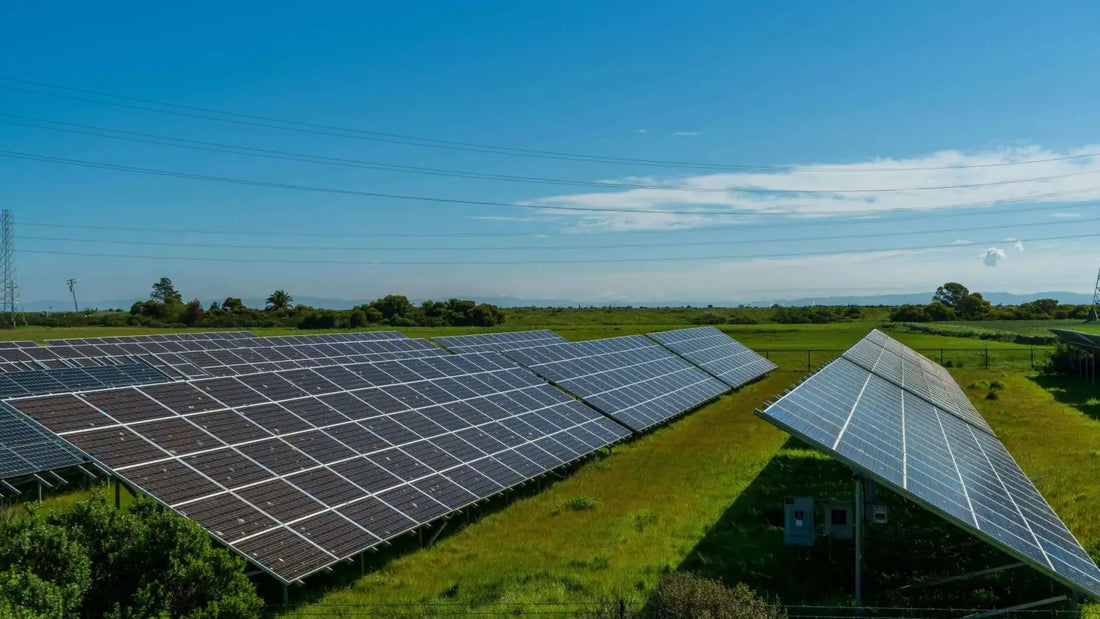
The Ultimate Guide to Designing, Installing, and Maintaining Your Independent Solar Solution
As the world moves towards sustainable, renewable energy sources, off-grid solar systems have emerged as an ideal solution for many Australians seeking energy independence and reduced environmental impact. These self-contained solar power systems allow homeowners and businesses to generate their own electricity, completely independent of the main power grid, empowering them with control over their energy usage and expenditure. As experts in providing comprehensive solar power solutions, including solar panels, lithium batteries, inverters, and off-grid solar systems, we are eager to share our knowledge with you to help facilitate your solar journey.
In this in-depth blog post, we will provide you with the ultimate guide to designing, installing, and maintaining your off-grid solar system. Our goal is to equip you with all the information necessary for achieving off-grid solar success, including determining your energy needs, choosing the right off-grid solar components, understanding the installation process, and implementing best practices for system maintenance. By the end of this article, you will have the tools and knowledge needed to make well-informed decisions for your off-grid solar journey, ensuring a seamless and satisfying transition to energy independence.
Determining Your Off-Grid Solar Energy Needs
Before diving into the design and installation process, it is vital to determine your off-grid solar system’s energy requirements. Accurate estimation of your daily and annual power consumption will dictate system size, storage capacity, and other critical factors, ensuring your off-grid solar system can efficiently meet your energy demands. To effectively calculate your energy needs, consider the following steps:
1. List Your Electrical Appliances and Devices
Make a comprehensive inventory of all electrical appliances and devices used in your home or business. Be sure to include information on each device’s energy consumption (typically measured in watts) and daily operating hours.
2. Calculate Daily Energy Consumption
For each appliance or device, multiply its energy consumption by the daily operating hours. The result is the daily energy usage for each item. Sum the daily energy usage values to obtain your total daily energy consumption.
3. Factor in Seasonal Variations
Keep in mind that your energy needs may vary seasonally, particularly if you use electric heating or cooling systems. Be sure to factor in these seasonal fluctuations when estimating your off-grid solar system’s energy demands.
With a clear understanding of your energy needs, you can begin to design your off-grid solar system, ensuring it is tailored to provide reliable, independent power for your home or business.
Designing Your Off-Grid Solar System
Designing a robust, efficient off-grid solar system entails the careful selection of high-quality solar components, including solar panels, inverters, batteries, and backup generators. The configuration of these components must be optimised to your specific energy needs, location, and budget.
1. Solar Panels
Choose solar panels that offer high energy conversion efficiency and durability. Monocrystalline and polycrystalline solar panels are popular choices for their superior performance and longevity. Be sure the number of solar panels selected aligns with your daily energy requirements and available installation space.
2. Batteries and Energy Storage
As the cornerstone of your off-grid solar system, selecting the right battery storage solution is critical to ensuring system performance and reliability. Lithium batteries are renowned for their high energy density, long life span, and reduced maintenance requirements compared to traditional lead-acid batteries, making them an excellent choice for off-grid solar systems.
3. Inverters
Invest in high-quality inverters designed to convert the direct current (DC) electricity produced by your solar panels into alternating current (AC) electricity compatible with your home or business appliances. Off-grid inverters are designed specifically for use in independent solar power systems and are available in various output capacities to suit your energy needs.
4. Backup Generators
Incorporating a suitable backup generator into your off-grid solar system design can provide valuable peace of mind, ensuring an alternative power source during periods of high energy demand or prolonged cloudy weather.
Installing Your Off-Grid Solar System
Once your off-grid solar system has been designed, professional installation is paramount. A reputable solar provider will ensure proper installation of your solar panels, batteries, inverters, and any additional components, ensuring seamless integration and optimal performance. Additionally, a qualified solar installer will guide you through any necessary permits, inspections, and certifications required for off-grid solar installations.
Maintaining Your Off-Grid Solar System
Routine maintenance and monitoring of your off-grid solar system are crucial to prolonging its lifespan and sustaining optimal performance. Consider implementing these best practices to ensure the ongoing success of your independent solar power system:
1. Regular Visual Inspections
Conduct frequent visual inspections of your solar panels, batteries, inverters, and other system components to identify any signs of damage, wear, or potential issues.
2. Solar Panel Cleaning
Keep your solar panels clean and free from debris, dust, and bird droppings to ensure maximum sunlight exposure for optimal energy generation.
3. Battery Maintenance
Monitor your battery’s health and charge levels, adhering to manufacturer guidelines for maintenance and care. Proper battery management will ensure prolonged life and optimal system performance.
4. On-Going Performance Monitoring
Utilise performance monitoring tools, apps or energy management platforms to track energy production and consumption, identify any abnormalities or inefficiencies, and make informed decisions on system adjustments or upgrades.
Embrace Off-Grid Solar Success With Expert Guidance
Designing, installing, and maintaining an off-grid solar system can be a complex and rewarding endeavour. By understanding your energy needs, selecting the right components, and partnering with a reputable solar provider, you can ensure your off-grid solar system is poised for long-lasting success and exceptional performance.
Let us be your trusted partner in your off-grid solar journey, providing you with premium solar products, expert installation services, and an unwavering commitment to customer satisfaction. Embrace the benefits of off-grid solar energy and experience the freedom of energy independence by your side.


